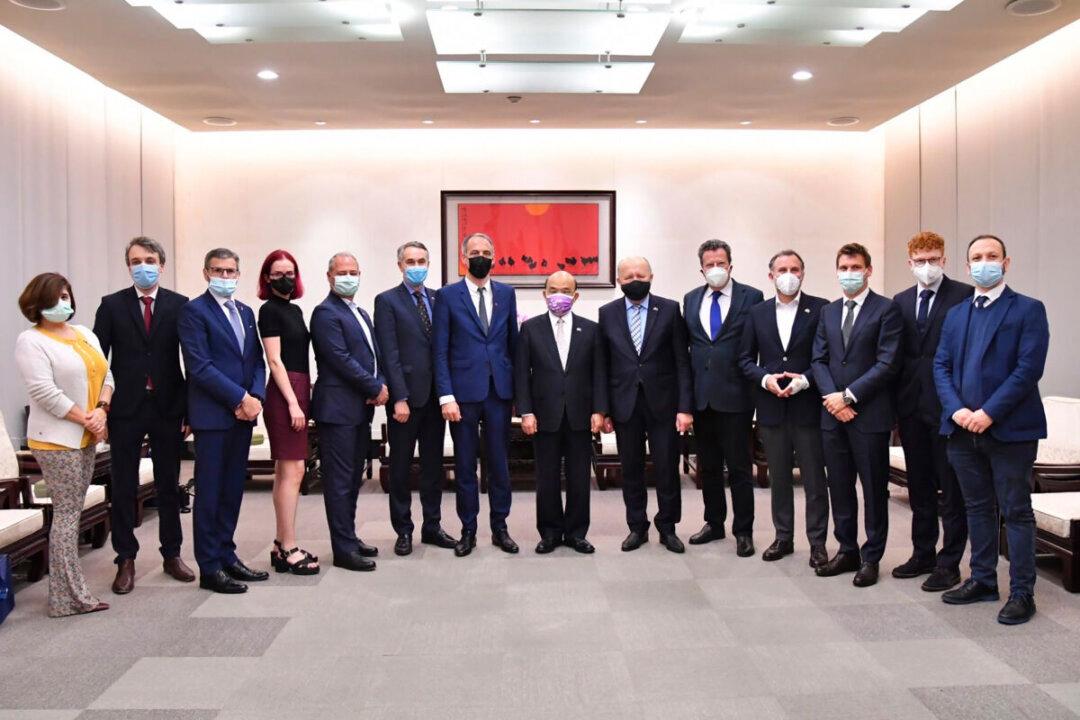TAIPEI, Taiwan—Bumping their elbows in greeting, European Union parliamentarians met with Taiwan’s premier on Wednesday in the first official visit of an EU delegation to the self-ruled island, amid threats from the Chinese regime.
Thirteen members of the EU committee on foreign interference in democratic processes are visiting Taiwan, after the European Parliament passed a resolution last month calling for the body to “intensify EU-Taiwan political relations.”





